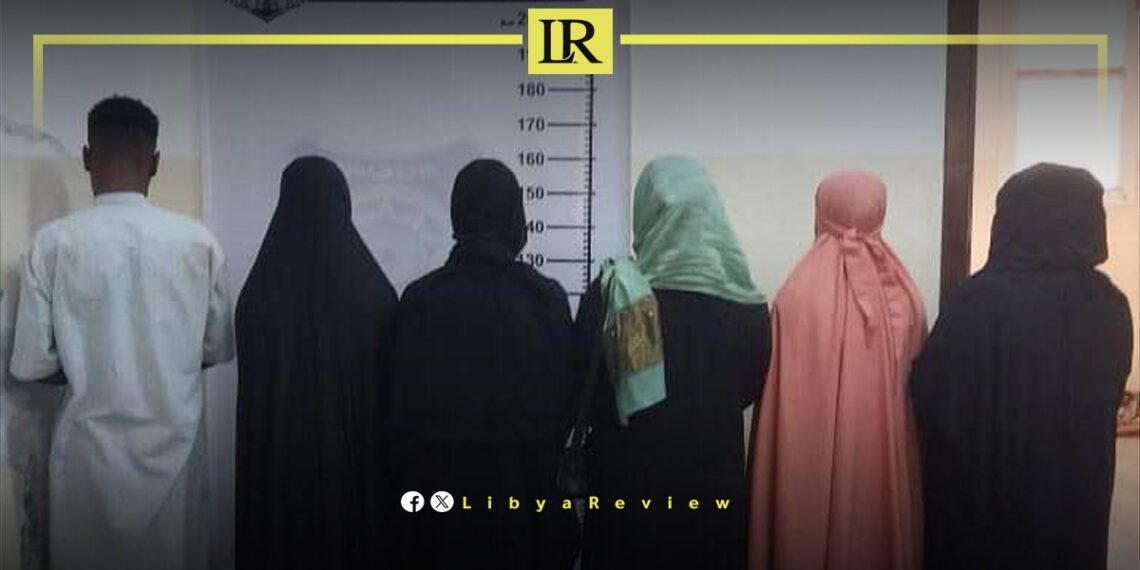Security authorities in Libya have arrested a Libyan national accused of transporting undocumented female migrants from the southern city of Sebha to Benghazi.
In a statement released by the Ajdabiya Security Directorate, officials said the arrest took place on Thursday, May 22, 2025, at 2:00 a.m., as part of a wider security plan involving highway checkpoints.
The suspect, identified by his initials A.A.A.H, was stopped by officers from the Bishr Police Station while driving a grey Hyundai Sonata. He was accompanied by a Libyan woman identified as N.A.M.
Upon questioning, the driver admitted he had no documentation for the vehicle. When asked about his relationship with the woman, he claimed she was his wife. However, authorities noted inconsistencies in their responses.
“When officers asked the woman for the name of the driver, she said she didn’t know him and that there was no familial relationship between them,” the statement noted.
Further inspection revealed two Nigerian women hidden behind the seats, raising further suspicion. Officers immediately stopped the vehicle and informed the Public Prosecution. A female officer searched the vehicle and discovered two more Nigerian women concealed in the car’s trunk, none of whom spoke Arabic.
The suspect attempted to mislead the officers by showing fake ID cards belonging to Libyan women and claimed they were his sisters. After further interrogation, he confessed to repeatedly smuggling migrants from Sebha to Benghazi, charging 500 Libyan dinars per passenger. He also admitted that the Libyan woman with him played a role in helping him bypass checkpoints by pretending to be his wife.
A translator was brought in to take statements from the Nigerian women. All legal procedures were followed, and the case has been referred to the Public Prosecutor’s Office.
Libya has been in chaos since a NATO-backed uprising toppled longtime leader Muammar Gaddafi in 2011. The county has for years been split between rival administrations.
Libya’s economy, heavily reliant on oil, has suffered due to the ongoing conflict. The instability has led to fluctuations in oil production and prices, impacting the global oil market and Libya’s economy.
The conflict has led to a significant humanitarian crisis in Libya, with thousands of people killed, and many more displaced. Migrants and refugees using Libya as a transit point to Europe have also faced dire conditions.
The planned elections for December 2021 were delayed due to disagreements over election laws and the eligibility of certain candidates. This delay has raised concerns about the feasibility of a peaceful political transition.
Despite the ceasefire, security remains a significant concern with sporadic fighting and the presence of mercenaries and foreign fighters. The unification of the military and the removal of foreign forces are crucial challenges.


